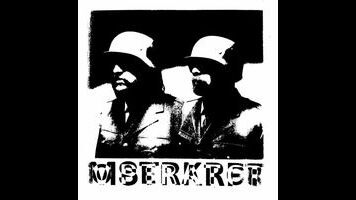MSTRKRFT’s Operator embraces a looser, DIY punk approach

After Death From Above 1979 split in 2006, Jesse F. Keeler immediately started focusing full-time on his electronic duo project, MSTRKRFT. The two groups shared a penchant for beat-borne aggression, but little else: DFA 1979 favored thrashing screampunk, while MSTRKRFT stuck to club-ready electro-disco. Over time, however—especially with the former’s 2011 reunion and enduring popularity—the gap between the two projects has narrowed. Although MSTRKRFT is certainly still firmly in the electronic camp, its spirit hews much more toward DFA 1979’s looser, DIY punk approach.
That’s evident on Operator, MSTRKRFT’s third full-length. To create the album, Keeler and co-conspirator Al-P took a live-band electronica approach, amassing a stash of vintage keyboards and synths and jamming on music. That equates to a dirtier synth-rock sound with less production gloss and more diversity. Just as 2014’s The Physical World showed DFA 1979 wasn’t interested in repeating the past, Operator finds MSTRKRFT eager to explore new vistas.
“Wrong Glass Sir” begins in a flurry of rat-a-tat beats before evolving into percolating electropop smudged with grime; “Runaway” is sizzling house music with swerving keyboards and slo-mo funk vocals; and highlight “Little Red Hen” boasts colorful programming featuring siren-blare effects and tumbling keyboards that squeak like sneakers on linoleum. Other songs are more evocative. “Playing With Itself” resembles the experience of listening to music from outside of a building—courtesy of muffled noises and decayed, sine-wave keyboard whines—and the cinematic “Morning Of The Hunt” conjures the eerie unease of a haunted house.
Unlike MSTRKRFT’s 2009 album Fist Of God, whose vocal cameos detracted from the music, Operator is most compelling on songs with guest singers. Sonny Kay from noise merchants The VSS adds menace to the throttling “Priceless,” while “Party Line” conjures Ministry’s cowboy synthpunk days, thanks to a distorted sneer from Nation Of Ulysses’ Ian Svenonius and some vicious, teeth-scraping electronic programming. In an even better move, the album ends with a steel-toed boot to the head: Converge’s Jacob Bannon lends abrasive vocal barks to the metallic no-wave snarl “Go On Without Me.”
The gripping nature of these vocal-augmented tunes unintentionally amplifies the weakness of Operator’s instrumental electronic songs. Without the anchoring presence of a singer, they tend to fade into sonic wallpaper. This isn’t a fatal flaw—MSTRKRFT is certainly far more inventive than most, so the songs aren’t boring, just unmoored. However, it does make Operator a frustratingly uneven listen.